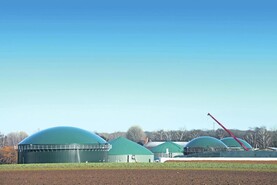The National Biomethane Strategy will support greenwashing of natural gas and increase the economic viability of emissions-intensive milk and meat production.
This was according to An Taisce which this week issued a scathing review of the Government's National Biomethane Strategy, which aims to develop an agri-centric anaerobic digestion (AD) industry.
In a statement from the independent charity, it said the strategy abjectly fails to address the multiple and very serious issues raised by An Taisce and the EPA during the public consultation.
It said that the strategy lacks transparency: it is unclear what is being signed up to, what risks are entailed, what benefits are likely relative to alternative options, or how much the Strategy’s delivery will ultimately cost the public purse.
Agri-centric
An Taisce said that system change to resilient national energy and agri-food systems is urgently required, but the strategy mostly reinforces the business-as-usual model for Irish agriculture which is unsustainably imbalanced toward intensive livestock production.
Rather than being evidence-led and society-centred, the strategy states it will be "agri-led and farmer-centric", according to the charity.
“The updated National Biomethane Strategy text overtly embeds bias toward vested interests by allowing industry stakeholder influence over its implementation and governance,” it said.
Methane leakage
An Taisce said that the only substantive improvement in the strategy relative to the draft version is a new section on the importance of minimising methane leakage from AD plants.
Otherwise, the revised strategy has ignored all of the key issues raised by the EPA and An Taisce, including the need for rigorous independent oversight, enforced limits on chemical nitrogen use in feedstock production, minimising AD plant impacts on communities, and limiting pollution from use of the digestate by-product as a fertiliser, it said.
Small-scale
An Taisce concluded by stating that that large scale AD biomethane should not proceed without assessing "far smaller scale" roll-out first, and modelling of alternative options, which may be less costly and come with lower environmental impacts.






 This is a subscriber-only article
This is a subscriber-only article










SHARING OPTIONS: